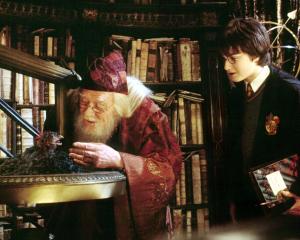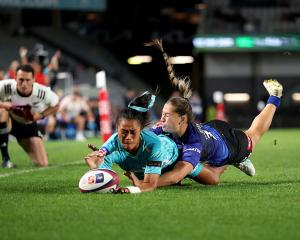
There are the two established political hui. Usually the first is Ratana, at Ratana Pā in Whanganui, where the community celebrates the birth of the prophet, Tahupotiki Wiremu Ratana.
Ratana is a well-established political, religious and iwi movement which continues to hold a grip on both Māori and Pākeha political life in Aotearoa New Zealand. Every year, politicians from most parties attend and use the opportunity to set out their political objectives for Māori for the year.
The second hui is Waitangi Day. While we often see the political events at Te Tii Marae in the North, we rarely see the festival that surrounds that commemoration. This year in the South, Ngai Tahu is hosting the commemoration at Te Rau Aroha Marae in Motupōhue Bluff.

It will be vital for National, and the Rt Hon Chris Luxon in particular, to take these three hui seriously. This is the best opportunity the prime minister has to show leadership on the relationship between iwi Māori and the Crown and to establish his mana for his first term.
If he fails this test of leadership, he will have fully conceded the Māori-Crown relationship to New Zealand First leader Winston Peters and Act New Zealand leader David Seymour, as he did during the election campaign. Luxon has a chance now to regain some of the mana he lost during those awful months.
His contribution need not concede National Party policy. An important demonstration of mana is honest leadership that represents the values and desires of the people that the leader represents. Māori cannot respect a leader that says one thing to their own people and another to Māori.
Prime Minister Luxon now has the challenge to represent the values and desires of iwi Māori as well as National’s members and voters. So will he listen to what Māori say are important to us?
We heard him tell us, during the election campaign, that the only things Māori really care about are the cost of living and housing. Whenever he was challenged on broader issues of decision-making, like the role of Māori in allocating health resources through Te Aka Whai Ora, he would return to his speaking notes about how we are only worried about the financial bottom-line.
He speaks about us as if we have no concerns but food and shelter. Like pets.
The test for him is whether he will listen to what Māori tell him are important to us now he is out of campaign mode. And then whether he can fold those concerns into a vision for a prosperous nation. If not, the only conclusion we can draw is that he does have a superiority problem about Māori people.
He will be making a mistake if he takes the latter approach.
The Ratana movement is older than the National Party, and continues to hold significant sway with the morehu. And the Kingitanga is older still, with no sign of it lessening its national influence. Māori have survived and thrived under more trying circumstances. Māori have, and can, deal with whatever government arises from the majority. The question is whether the new government will act with integrity.
National has been in a similar situation before, when John Key took over in 2008 after Labour’s disastrous foreshore and seabed debacle. One of his first public acts as the new prime minister was to attend two major hui with iwi Māori leadership in Tamaki Makaurau and Pukawa marae in Tongariro.
These hui, facilitated by the new National-Māori Party relationship, enabled him to connect with Māori leadership on a rangatira-rangatira basis. He put forward National’s unequivocal position on water while also listening to the iwi leadership’s issues.
These two hui, held in the first few months after the 2008 election, built an authoritative, statesperson-like Māori-Crown relationship that the now Sir John could, and did, bank on in later years. Iwi leadership might have disagreed with the prime minister and his government, but there was also respect for his intent to openly engage.
Luxon’s first opportunity to do the same will come in a week’s time with the Kingitanga hui. Even if he doesn’t attend, his public response will set the tone for the year. And the choice for him is stark.
Will his prime minister-ship be dogged by Brash-like disharmony and racism? Will Peters and Seymour be allowed to drive the government’s and therefore Luxon’s own leadership agenda on critical constitutional and economic matters?
Or will Luxon take hold of the Māori-Crown relationship as a significant constitutional and economic opportunity like John Key did?
Mana can be lost by one’s actions and it can be gained by one’s actions. Māori or Pākehā, National voters or not, we need our leaders to demonstrate integrity, honesty and respect. The next four weeks are Luxon’s best opportunity to gain the mana every leader needs to succeed.
■ Metiria Stanton Turei is a law lecturer at the University of Otago and a former Green Party MP and co-leader.












